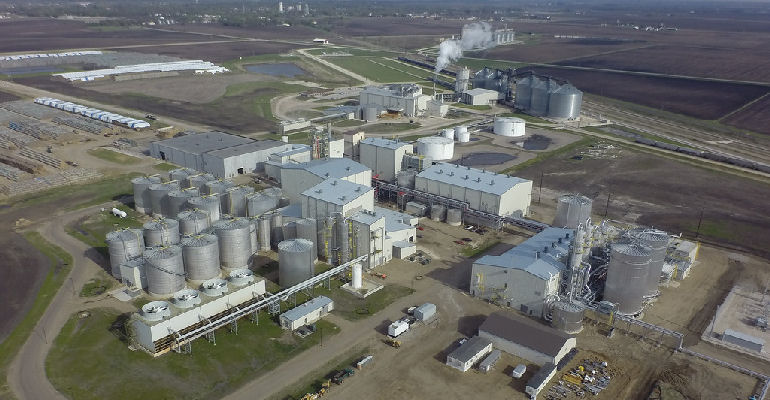Poet says it has found a breakthrough with its cellulosic technology.

The woes and wins of cellulosic ethanol technology continue to come into play in an industry that has struggled to find competitive processes. DuPont said it is looking for a strategic buyer for its cellulosic technology, including its Nevada, Iowa, biorefinery. Meanwhile, POET, the leading ethanol producer, reportedly reached a breakthrough in its pretreatment technology.
“As part of DowDuPont’s intent to create a leading specialty products company, we are making a strategic shift in how we participate in the cellulosic biofuels market. While we still believe in the future of cellulosic biofuels, we have concluded it is in our long-term interest to find a strategic buyer for our technology, including the Nevada, Iowa, biorefinery,” DuPont Industrial Biosciences said in a statement to Feedstuffs.
DuPont’s Iowa plant opened in October 2015 and was intended to be the first of several facilities that would use DuPont enzymes and yeast to turn corn cobs, stems and leaves into ethanol.
DuPont said it will continue to participate in the overall biofuel market through specialty offerings, including biofuel enzymes and engineered yeast solutions that improve yield and productivity for biofuel producers.
“We plan to work closely with local, state and federal partners to assure a smooth transition as we pursue the sale of the business. All affected employees will receive support services during this transition,” the statement said.
Cellulosic breakthrough
Atul Thakrar, board member of POET-DSM Advanced Biofuels, said, “Where others have seen challenges, we have persevered. Cellulosic biofuel production is an exciting opportunity with a bright future, and POET-DSM will lead the way.”
POET-DSM reportedly has achieved a major breakthrough in cellulosic biofuel production at its Project LIBERTY plant in Emmetsburg, Iowa. The company has solved a critical challenge in pretreatment, overcoming what has been the top hurdle to commercialization for producers around the world.
Project LIBERTY is now running pretreatment at 80% up-time.
Pretreatment is the first stage in cellulosic biofuel production, where the feedstock (corn cobs, leaves and husks) is processed so that enzymes and yeast can access the cellulosic sugars and ferment them into biofuels. POET-DSM and other producers have identified this stage in the past as the major chokepoint in commercial production.
With a newly installed pretreatment system designed by POET engineers, POET-DSM is now able to direct its attention to fine-tuning downstream processes and prepare for future licensing efforts that will spread this technology around the world.
“This is an enormous step forward for clean, American-made biofuel,” POET-DSM board member Jeff Lautt said. “Commercializing new technology is always a challenging task, and I’m proud of the commitment from our team in overcoming this major challenge and developing a path for replicating the technology at facilities across the U.S. and world.”
Earlier this year, POET-DSM announced construction of an on-site enzyme manufacturing facility to directly pipe DSM enzymes into the process. POET-DSM has an integrated process in which yeast and enzymes are used in concert with the feedstocks. The company has also ramped up biomass purchasing in anticipation of increased production levels in 2018.
About the Author(s)
You May Also Like



.png?width=300&auto=webp&quality=80&disable=upscale)

